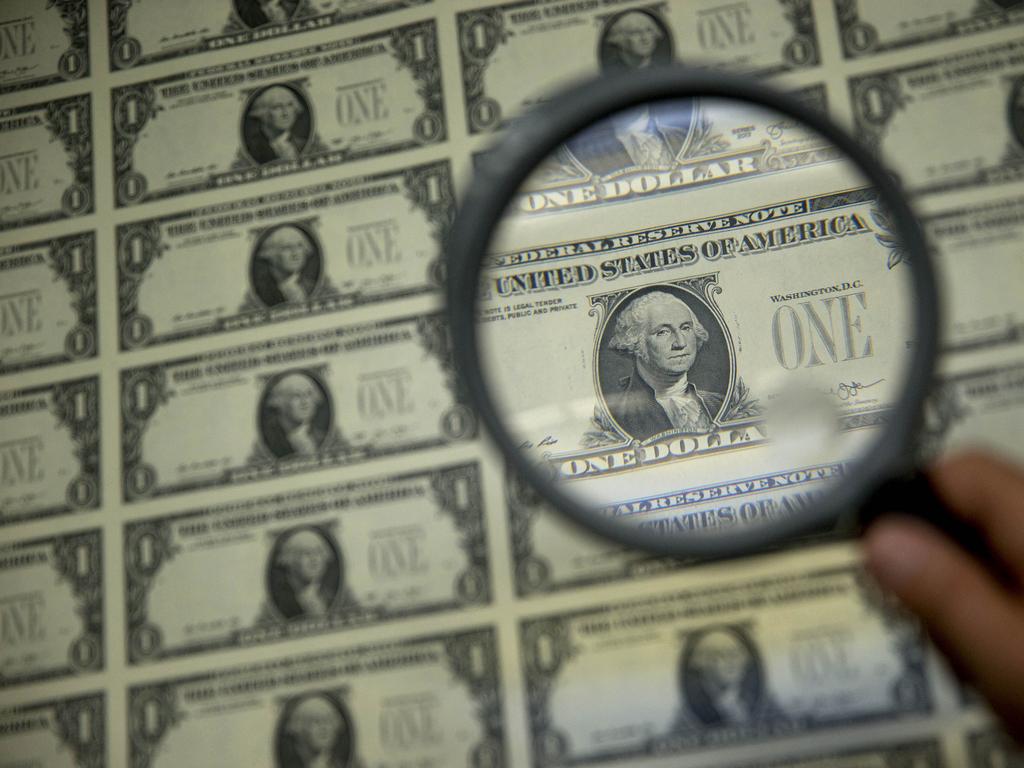
A second US wave of the COVID-19 virus is spreading through the nation. And Donald Trump had a bad weekend, which means that Joe Biden, with his proposed higher wealth and corporate taxes, took one step closer to becoming the next US president.
Scores of top share experts are warning that the market is too high, but still it resists major sustained corrections and creeps higher.
In simple terms the staggering amounts of cash in the system that can’t earn a worthwhile return overwhelm traditional concepts of value, which is why value investors like Warren Buffett, now aged in his late eighties, become very nervous.
The best way to look at the cash on the sidelines is to highlight the boom in US bank deposits earning very low returns.
A record $US2 trillion surge in cash has hit the deposit accounts of American banks since the coronavirus first struck the US in January.
In April alone, deposits grew by $865 billion, more than the previous record for an entire year.
It’s not hard to see where the mountains of cash are coming from. The government unleashed hundreds of billions of dollars to bolster small businesses and individuals via stimulus payments and unemployment benefits.
In addition, the Federal Reserve began an unlimited bond buying program. And at the same time uncertainty prompted decision makers, from households to global corporations, to hoard cash rather than spend it.
CNBC quotes Brian Foran, an analyst at Autonomous Research, as saying: “This growth has been absolutely extraordinary -- banks are flooded with cash, they’re like Scrooge McDuck swimming in money.”
Many bank deposit customers who are also swimming in low returns seek to boost those returns by equity speculation A lack of sports have also driven many young investors into the market.
As a result a flood of new retail investors have started buying through brokers like Robinhood, Charles Schwab and TD Ameritrade.
Robinhood attracted an incredible three million new accounts in the first quarter. The low-fee broker brand that implies taking money from the rich capitalists and spreading it among smaller investors worked. Some investors simply chase brands they know and so Apple, Amazon and similar stocks have received a boost. But that can extend to buying worthless stocks with well known brands like failed car rental group Hertz.
There is an old saying I was taught in the 1960s---when “the tea lady” starts buying shares it’s time to exit the market. In today’s language that is sexist and in any event “tea ladies” no longer exist. Today’s “tea ladies” are ordinary citizens with little knowledge of shares.
Meanwhile bearish professional investors take solace in graphs which show that earnings are not keeping up with the share index.
Clearly the US aid programs have not been well targeted and too much money has ended up in banks.
In Australia so far we have not seen anything like the bank deposit rise experienced in the US, although bank deposits are climbing despite lower rates.
In its recent presentation to shareholders the Commonwealth Bank showed that whereas in 2008 the bank funded 55 per cent of its business from local bank deposits the latest local funding level was up to 70 per cent.
As well as a string of deposits the Reserve Bank extended a $150 billion term funding facility to offer three-year funding to banks and authorised deposit-taking institutions.
But Australian banks have hardly touched it. Like their US counterparts they don’t want to incur big losses on new loans and are trying to minimise losses on existing ones.
The NAB philosophy was set out on Monday at the Bloomberg conference by CEO Ross McEwan. He said: “We’re making the assumption that those businesses that were strong going into this crisis, we should be there supporting them.
“I guess there’ll be some sectors that we have to be much more careful with and we’ll have to support in a different way. But our view was that a good business going in, we’ll support to be a good business coming out. But it may take some time. You’re already seeing some industries doing quite well, but you’re also seeing some industries, like inbound tourism and airlines that are really struggling. So, you have to care for them in a different way to what you would for other businesses that may not be affected as much.”
That’s a cautious approach.
Banks, whether they be in the US or in Australia, are not spraying their cash around and those people who are struggling are unlikely to get much support by changing banks. Banks prefer to lower bank deposit rates.





In theory Wall Street should have opened the final week of the 2019-20 financial year lower.